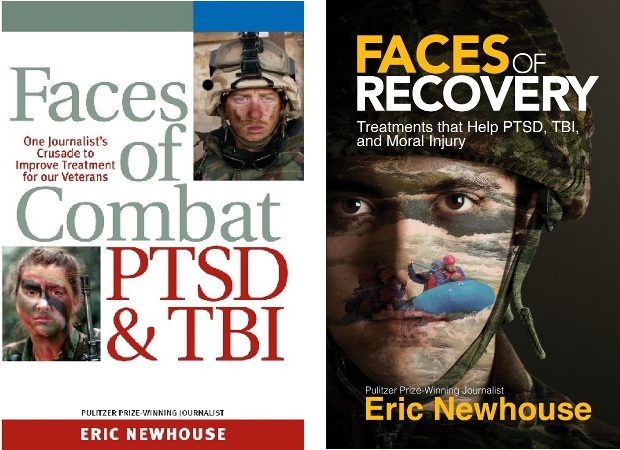This is a great article are the forever changing practices of the VA. It outlines the changes in the VA appeals process. To read the article, 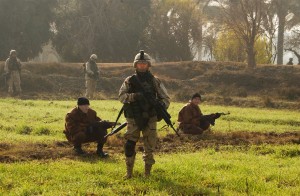 Click here.
Click here.
Tag Archives: veteran suicide
Life Changing Book for Vets
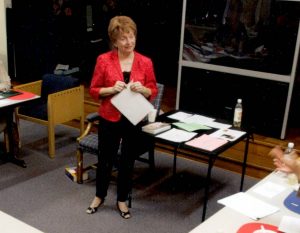
To merely categorize Pulitzer-Prize-winning author Eric Newhouse’s latest writing Faces of Recovery as “a book” is misleading. In actuality, it is several books in one, with varied reader-audiences.
Its subtitle, Treatments that Help PTSD, TBI and Moral Injury, covers vastly more information as well, including research, personal stories, interviews, perspectives, and compelling examples aimed at educating military veterans, their family members, veterans’ counselors, civilians, and decision-makers in our Veterans Administration.
His writing is in-depth; his reporting focuses on various past weaknesses and some current improvements slowly being made to assist veterans, but his ultimate conclusions are uplifting and positive.
There is hope for those suffering from war’s “invisible wounds” as well as those with more obvious scars. Many people who never faced combat but who suffer from PTSD and other injuries can learn methods to help them begin healing.
What readers will discover is an overview of how millions of American veterans and their families continue daily to confront issues that resulted from what they experienced first-hand in battle or witnessed as journalists/photo-journalists, or as military and medical personnel. Some never left our shores and yet have PTSD symptoms years after the original incidents occurred. Clearly, our society may be experiencing a vast and complex general condition: soul injury.
Newhouse’s numerous personal interviews combined with gut-wrenching and detailed stories are reinforced by scientific research and statistics backed by reliable medical studies and decades of veterans’ data which leave no doubt that prolonged combat increases emotional and physical injury.
A veteran himself, Newhouse reveals in a stunning description how he was suddenly, personally, and emotionally affected when, for the first time, he stood in front of the Vietnam Memorial in Washington. He had served in the Army, but since he was never deployed to Vietnam, he felt he had left the service unscathed. It was his psychological experience at “The Wall” that triggered his mission to seek help for those millions of Americans who served, both in combat and on the home-front, still suffering the effects of lost innocence.
Memories of actions resulting in killing someone during combat can also cause life-long guilt and trauma, if left to fester. Moral injury, as he terms it, can be as catastrophic as brain injuries.
Newhouse often speaks to veterans’ groups and those who counsel vets. He consults with Veterans Administration planners, interviews those veterans and civilians who, through military service or their civilian jobs, have suffered everything from “shell-shock,” a term used following WWII, to PTSD and TBI or moral injury from Vietnam or Middle East combat.
His book also includes revealing writings and interviews from many combat vets as well as one woman journalist who witnessed, solely on television, a major natural disaster with resulting deaths when her hometown of New Orleans was forever changed. Still today, although improving, she is re-living some of the images. Newhouse outlines successful techniques and approaches to make progress on what can be a slow-but-sure road to recovery.
Having taught Marines and sailors for the past two years at Camp Pendleton in a volunteer program called, “Writing for Strength,” I am honored to be mentioned in Newhouse’s latest release, a sequel to his Faces of Combat, used extensively in counseling and other educational programs to help veterans and others start to recoup their lives.
His books are essential for those working with veterans. Counselors and chaplains who attended my program consider Newhouse’s methods vital for connecting with and helping vets begin their healing process. Individual Marines and sailors who participate in Camp Pendleton’s program report finding his techniques something they need to continue to practice. Newhouse shows how writing, physical exercise, counseling and education can be combined to assist those who are injured.
He continues to dedicate his own life to making a difference in the lives of others. Faces of Recovery is the latest of his superb guidebooks for those in need.
Julie Davey, Writing for Strength Program, Camp Pendleton
Fireworks and This Combat Veteran
Ok. I was wrong. The conclusion of my last blog has been blown out of the water. To be honest, I’m glad. I’m glad that most people are not living in fear and jumping at every car backfire.
As a combat veteran, there is a special way I go about enjoying fireworks every year with my family. It has a lot to do with grounding myself in reality and in the present. To do this, I use what I call a “grounding point”; something, anything that did not and could not have existed during my combat service. When I’m feeling uncomfortable, I reassure myself by looking at this thing.
This year my grounding point was my youngest daughter. To know her is to know happiness and joy. She has a smile for everyone. But the best part about her? She did not exist and in no way reflects my combat service. Therefore, if she is with me and I can see her, then I am grounded solidly in the present.
The fireworks this year started like any others. They were beautiful and one even looked like Saturn! How they do that is beyond me. Anyways, things were good. I had a little trouble, as always, with the flash bangs, those that go up and then just boom with a bright ball of light, but my daughter casually reached over and held my hand. A little extra “grounding”. And then, toward the end of the fireworks, someone thought it would be funny to set off some kind of firecrackers in the parking lot. Whatever these firecrackers were, they sounded exactly like automatic rifle fire. And they were coming not from the fireworks in front of me but from my right flank. I’m not afraid or ashamed to admit that I freaked and all thought of any “grounding point” was gone.
I immediately began to assess the threat when I realized that my family was with me. What the hell were they doing here? Total confusion set it. The soldier in me wanted to move toward the threat to better assess yet the parent in me wanted to get my family out of there. How in the hell could I be both at the same time? All my life the two things had been separate. Any threats I had faced had been oceans away from my family. Two different worlds.
I looked around at the people around us only to find them happily watching the continuing fireworks show. No one else appeared threatened. As I was trying to process and understand this observation, the finale began. The continuous booms and flashing lights left me a huddled, confused mess on the blanket until it ended. I do believe we were the first ones out of the parking lot.
Once home, my daughter came in to talk to me. She told me that after those firecrackers in the parking lot, she couldn’t enjoy the rest of the show. She said that with everything going on in the world, she just felt like a target sitting out there on the grass.
So the threats aren’t oceans away anymore. They are here and her fear is real though it saddens me. No one else seemed concerned. Have I done this to her? And now I have to also wonder…how will I be able to continue to take my family to public places while the soldier wars with the parent leaving both unable to function?
And back to therapy I go…..
Why Taxpayers Should Cover PTSD Treatment for Veterans by Lori Barnes
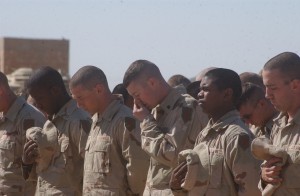 Every veteran suicide just breaks my heart and makes me angry. I’ve been hearing recently that some in the medical and military communities are claiming that those coming home with PTSD must have been damaged in some way beforehand. I don’t agree. I think a lot of our soldiers coming home with PTSD had gentle, kind hearts to begin with that are now heavy with fear and guilt. They can’t help it. In America, for the most part, we all have kind, gentle lives. We aren’t war torn. We really don’t know what it’s like to fear for our lives and those of our children every day.
Every veteran suicide just breaks my heart and makes me angry. I’ve been hearing recently that some in the medical and military communities are claiming that those coming home with PTSD must have been damaged in some way beforehand. I don’t agree. I think a lot of our soldiers coming home with PTSD had gentle, kind hearts to begin with that are now heavy with fear and guilt. They can’t help it. In America, for the most part, we all have kind, gentle lives. We aren’t war torn. We really don’t know what it’s like to fear for our lives and those of our children every day.
The military takes these basically kind people and puts them through basic training. They are all treated like dogs regardless of whom they are or where they come from. Once they are all at their lowest, the drill sergeants begin to bring them back up together to make them one cohesive unit, equal on all terms. This is necessary. Continue reading and add your comment
Do You Think You Have PTSD?
This article provides a great list of signs and symptoms common to those suffering from PTSD. If you think you or someone you love may suffer from PTSD, then please consult this list. If it looks like you or they do, contact your nearest Vet Center.
Sick at the VA by Lori Barnes
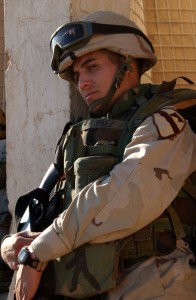 Over the past month, I have spent a total of nine days as a patient in the VA Hospital in Seattle. In the 17 years since I have been diagnosed with Crohn’s Disease, I have spent time in military hospitals (both in the field and out), civilian hospitals, and now the VA. I have to say that the care I received in Seattle was extraordinary. It’s not just the providers, though they were all wonderful, but the whole atmosphere of concern, respect, and camaraderie. There’s nothing like it.
Over the past month, I have spent a total of nine days as a patient in the VA Hospital in Seattle. In the 17 years since I have been diagnosed with Crohn’s Disease, I have spent time in military hospitals (both in the field and out), civilian hospitals, and now the VA. I have to say that the care I received in Seattle was extraordinary. It’s not just the providers, though they were all wonderful, but the whole atmosphere of concern, respect, and camaraderie. There’s nothing like it.
For those of you who are not familiar with Crohn’s Disease, it is an incurable inflammatory bowel disease that has chronic recurring periods of flare-ups and remission. Every day I strive to keep it in check, but every few years it comes back hard and I have to seek help to beat it back into remission. Like any good soldier, I fight the battle first on my own and seek reinforcements only once all appears lost. Sometimes, my “I can fix this myself” attitude gets me into serious trouble. This was one of those times. By waiting so long to get medical care, I had allowed a seven-inch bleeding laceration into my colon. The docs said it looked like a bear claw had swiped through allowing all kinds of nasty germs to grow.
Let’s be honest here. When a civilian sees their blood leaving their body, Continue reading and add your comment
